Of a bygone times: Pakistan must turn the tables if another golden era is to be seen
Table tennis has witnessed a dramatic fall from grace in the last three decades
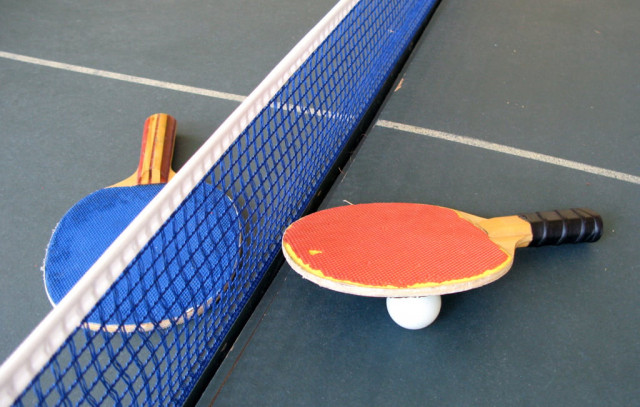
Of a bygone times: Pakistan must turn the tables if another golden era is to be seen
Considering the talents at the disposal of China, South Korea, North Korea, Japan and Taiwan, a sixth-place finish is as good as it gets.
The man behind it all
The name of Saiyid Muhammad Sibtain, more commonly known as SM Sibtain, stands synonymous with Pakistan’s golden era of table tennis. He was the man to take the game to new heights in the country by providing exposure to the team.
Sibtain was born in the city of Amroha in India and was not a particularly talented table tennis player and indeed his association with the sport was by chance, as his late friend, Imdad Ali, proposed his name as the secretary of the Karachi Table Tennis Association.
From there Sibtain made his way to the Pakistan Table Tennis Federation (PTTF), where he was elected vice-president in the early seventies.
Dizzying heights
In 1978, Pakistan hosted the Asian Games and their Chinese coach Yao Chen Xu, who was in charge from 1975 to 1978, helped groom a lot of young and talented players.
The crop included legends such as Javed Hayat, Sohail Hayat and the current coach of Pakistan national team Irfanullah Khan, and Sibtain still remembers that time with fondness.
“During that period we had several domestic tournaments and the players were given a chance to participate in international tournaments, which provided them with confidence and exposure,” said Sibtain.
The Games, however, were shifted to Bangkok due to political reasons, but despite playing away from home, the team reached the semi-finals and secured bronze.
“This was a time when Pakistan was sixth in Asia, our players were more in practice than ever before,” told Sibtain. “We were invited to play in the Arab Junior Championship in 1979, where Javed Chotani secured gold.”
The good times continued well into the eighties too. In 1983, ranked 26th, Pakistan made it to the World Championship, where they were placed along with category-two teams. “We were not allowed to play with Israel at the event and had to give them a walkover, or else we would have increased our ranking further,” told Sibtain.
Then came the hosting of the seventh Asian Table Tennis Championship in Islamabad in 1984, which saw 20 nations participate and marked the inauguration of the Liaquat Gymnasium. Back then, it was the largest sports event ever held in the country.
In 1986, Karachi hosted the Asian Table Tennis Cup and in 1988, the region’s Olympic qualifiers where Farjad Saif made it into the top 64 to qualify for the Olympics.
“We were lucky that we were trained by world class Chinese coaches, and had the support of the federation, especially of Sibtain,” said Irfanullah, who represented Pakistan internationally for 10 years.
The fall from grace
But it all came crashing down when Sibtain stepped down in 1990, to leave the sport in disarray.
“At that time, we had departments in Karachi and Punjab, but now there have been no local tournaments for six years and the departments have stopped hiring players,” added Irfanullah. “The game vanished from the domestic level. Now the national team has players with an average age of over 35.”
However, there is still hope. Sibtain returned as PTTF president 15 years later in 2005 and served a four-year tenure.
He was elected again in 2012 but two parallel Pakistan Olympic Association bodies kept the sport in disrepute. Even then, Sibtain has left his mark by organising the South Asian Junior Championship in Islamabad this year.
Now, Sibtain has once again started the long process of rebuilding the collapsed domestic structure. He has directed every region to hold regional tournaments at every age group so that they can have a pool of players.
“Karachi has mostly had the lion’s share in the formation of the Pakistan teams to compete globally,” said Sibtain. “Club-level activities were at their peak as Karachi had the Islamia Club, the Sharfabad Club, the St John’s, and the YMCA or the Amroha Club.”
He added that the situation is improving once again as the recently concluded regional event in the Islamia Club helped highlight a few precocious talents.
Pakistan languish on 83rd in the rankings and the fight in Sibtain, now 71, is slowly running out as he waits for a worthy successor. If Pakistan are to herald in another golden era, then someone will have to fill Sibtain’s considerable shoes when he walks off into the sunset.
Like Sports on Facebook, follow @ETribuneSports on Twitter to stay informed and join in the conversation.

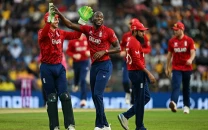
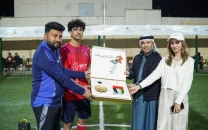

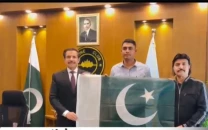
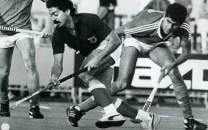
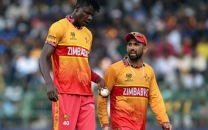












COMMENTS
Comments are moderated and generally will be posted if they are on-topic and not abusive.
For more information, please see our Comments FAQ